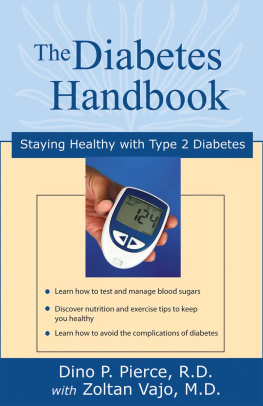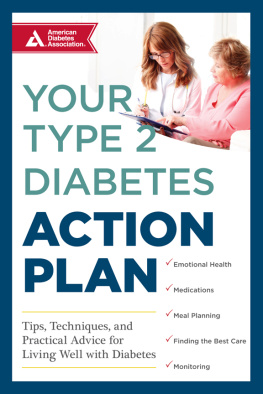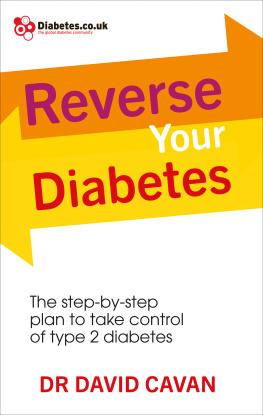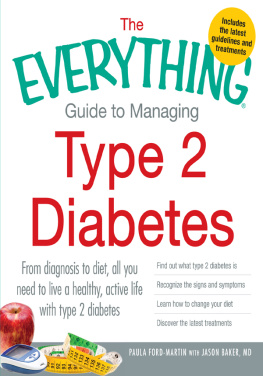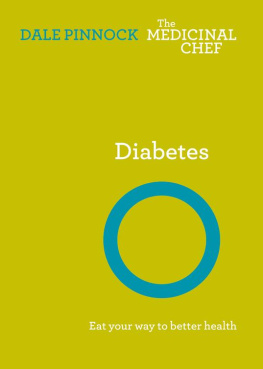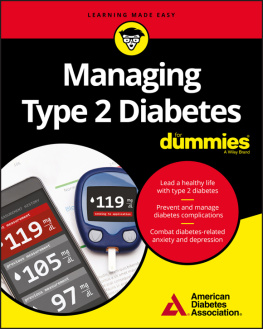Afterword
I n a recent conversation, a new client told me that he wanted to start making new healthy habits. He wanted them to stick because now was the time. He wasnt sick or limited, he just recognized if he continued down the path, he was going, it would not lead to the life he wanted.
So many of us either have health problems or are going down the route of having future health problems. Despite all the knowledge at our fingertips, our unhealthy lifestyles place us at serious risk. We continue with our unhealthy habits or seek out quick fixes only to be discouraged when they do not work. We come up short and we lose the confidence to continue. You might feel stuck, trying to navigate the obstacles and confusion related to health and wellness.
I believe that most people want to have health and fitness. They want to feel in control, to feel better, to have more balance, and confidence. However, I also recognize that there is a gap between what we want and what we have. I believe this book has laid out the groundwork for you to take control of your health. I believe that if you use the knowledge laid out in this book that you can find what works for you.
About the Author

Justin Kompf, PhD, has worked in the fitness industry since 2009 as a college strength and conditioning coach and personal trainer. He has an MS in Exercise Science and has a PhD in Exercise and Health Sciences with a focus on Health Behavior Change from the University of Massachusetts at Boston. Justin has taught at the State University of New York at Cortland and also at the University of Massachusetts at Boston. He has published work in the Strength and Conditioning Journal, Sports Medicine, the Journal of Physical Activity and Health, and the American Journal of Lifestyle Medicine. He has contributed his expertise in health behavior change to personal training certifications and nutrition certifications with the National Academy of Sports Medicine.
Chapter 1
Only Change What You Want To
M edicine only works when you take it. the same is true for health behaviors. They only work when you do them. People intend to exercise and dont, people intend to eat healthy and dont. Outside of working at the University, working with people like this this how I make a living. Helping people close the intention-behavior gap is my job. It is often the case that our good intentions are overwhelmed by our predispositions to engage in bad habits. We have competing goals (i.e., would rather watch television than go for a walk), bad habits, unhelpful social influence, low willpower, and we second guess ourselves. Even with the best of intentions we can forget to do what we intended to do, procrastinate, and miss the opportunity to act.
Good intentions only describe 30%40% of the variance in health-related behaviors. This means that the lack of a positive intention does not explain why a large percent of us do not engage in health behaviors.
Intention Does Not Guarantee Behavior
The person who says they have no intention to change is perhaps the most realistic. Tell your friends that you are not going to go for a walk, and they will believe you, but tell them that your New Years Resolution is to start exercising more and watch their reaction.
Jean-Denis Garon from the University of Montreal studied health club attendance in Canada. On average, people believed that they would go to the gym just over three times per week. One year later the researchers discovered that for more than half of the participants purchasing a gym membership is a terrible idea! On average, participants went to the gym 1.39 times per week. Purchasing a day pass each time they went (approximately 56 times per month) would have saved them over $300.00.
Godin Gaston from Laval University conducted a series of six studies. He found that only 45.5% of people with positive intentions to exercise acted on those intentions. To some, that might not sound so good. An intention to exercise is slightly worse than a coin flight, but to me that sounds rather good. Especially when you look at what else he found. Only 4.5% of people with negative intentions, that is they did not intend to exercise, exercised.
Action is dichotomous (yes or no). We can think of people as falling into four groups.
These groups include:
Group 1 (Non intenders/non actors): They say they dont intend to do something, and they dont do it.
Group 2 (Non intenders/actors): They say they dont want to do it and they do it. This is not common for health behaviors
Group 3 (Intenders/non actors): These are people who say they want to do something but dont do it. This is common for health behaviors.
Group 4 (Intenders/actors): These people intend to do a behavior and they do it.
Intention is a precondition for action. The energy that comes from motivation drives us to do something, so we make an intention.
Do good intentions deserve such a bad reputation? I would argue no. Good intentions are the first step towards change. About half of positive intenders can translate their intention to be physically active into behavior. Without an intention, hardly anyone is physically active, but the intention-behavior relationship is not extraordinarily strong. The relationship breaks down when people have good intentions but do not act.
As humans, we have the unique ability to think about distant potential futures. As I type this, I imagine finishing this book in a year. Its just as plausible that after a week I could write my last sentence and call it a wash (youd never know though!). We have the tendency to imagine the best possible futures, but why should we expect what we did last year to be any different than what we will do this year? If you are in the same situation now or a worse one, then why would you expect to be in a better situation next year? Why do we have such optimistic views of the future?
A slight burst of motivation can get a person to sign up for a gym membership. After purchasing it they are feeling good. Theyre going to do it this time. Then someone comes up to them and asks how many times per week they intend to go to the gym.
Why, at least three times, they say with confidence. Where is the evidence that a burst of motivation at lets say February 15th (since that is today for me) will have any influence on what they do on July 15th? This is not to be pessimistic, but it is something that must be considered.
Motivation
Directed motivation generates intention formation. Motivation is the sum of all the brain processes that create the mental energy to act. It is the drive to act in a particular way. When I explain behavior change in my health behavior change class at the University of Massachusetts Boston, I conduct an experiment with my students. I ask them to put their hand in the air as high as they can.
Hands go up, most of them still bent because its not cool to put your hand up in the air as high as you can.
For 10 bonus points on the midterm put your hand higher. I say.
Hands go up higher. Then I up the ante.
I will give an A to the person who puts their hand the highest in the air.
Without fail, someone stands up on a chair with their hand in the air. Then I break the news to them that I was kidding and that it was solely an imaginary A.
I enhanced the perception of a desired outcome and motivation increased. There are different types of motivation. In this case my students raised their hands higher for a reward. They were extrinsically motivated. In this case they wanted an A, but what if I flipped the script. What if I said, anyone who doesnt stand on their desk and raise their hand right now will fail the class. They would be coerced. This would still be extrinsic motivation though. What I am demonstrating is that not all forms of motivation are equal.
Next page

